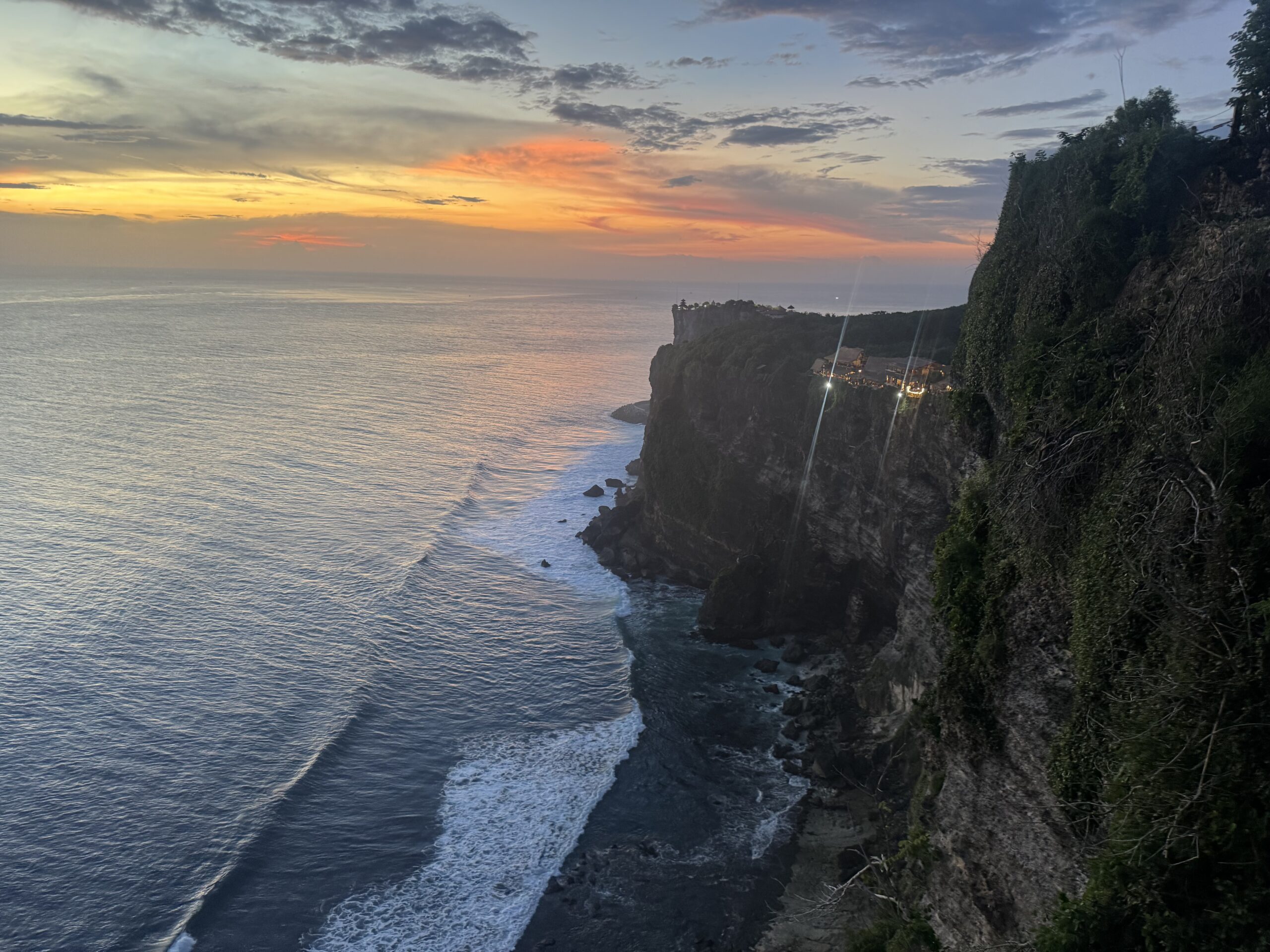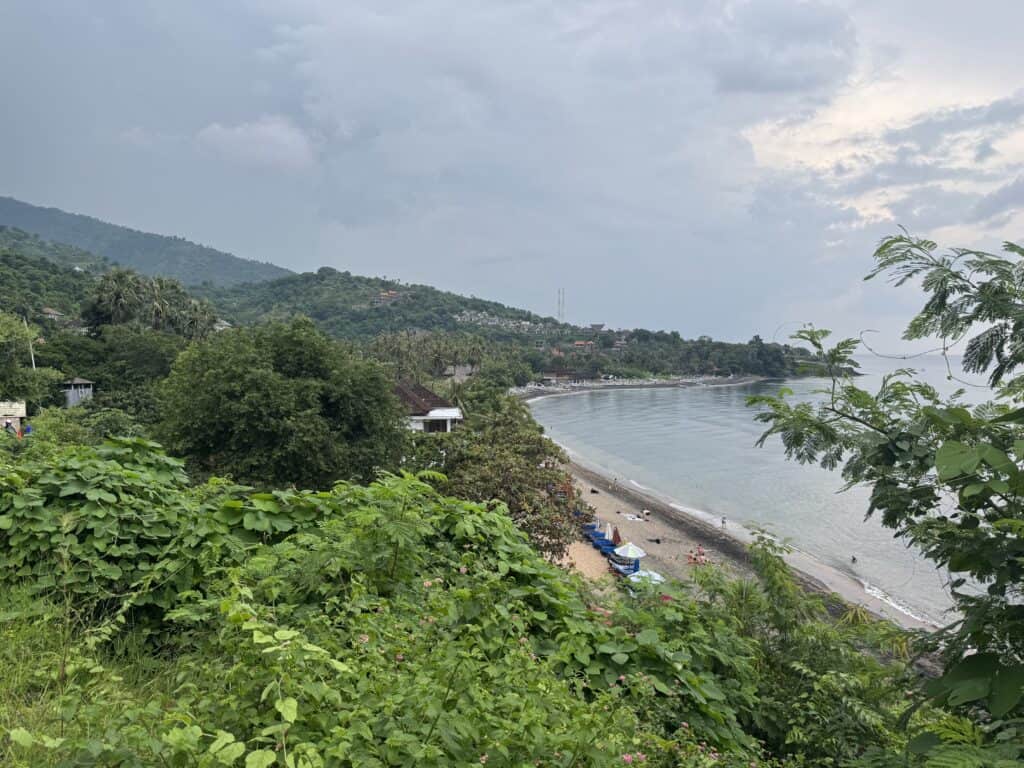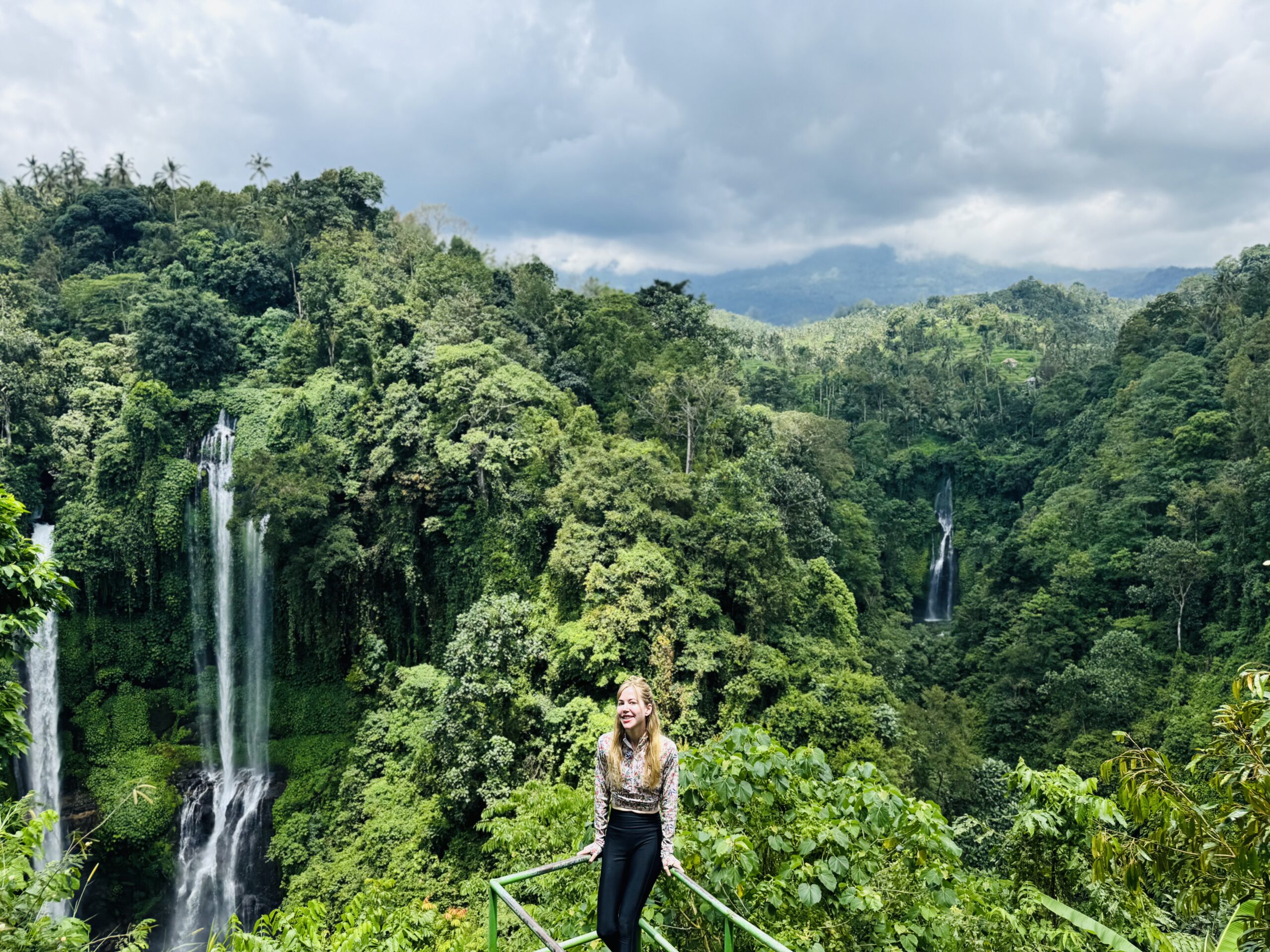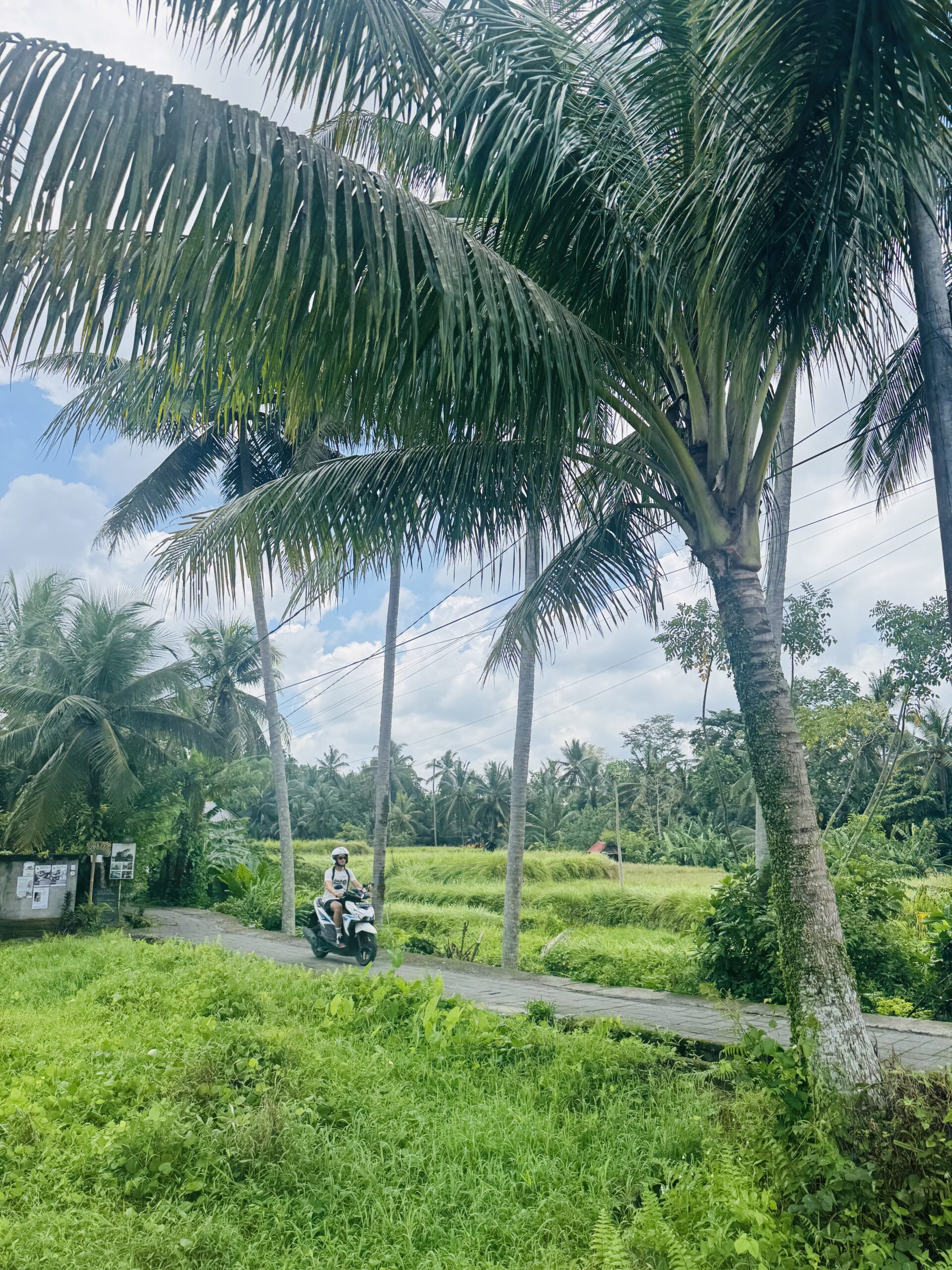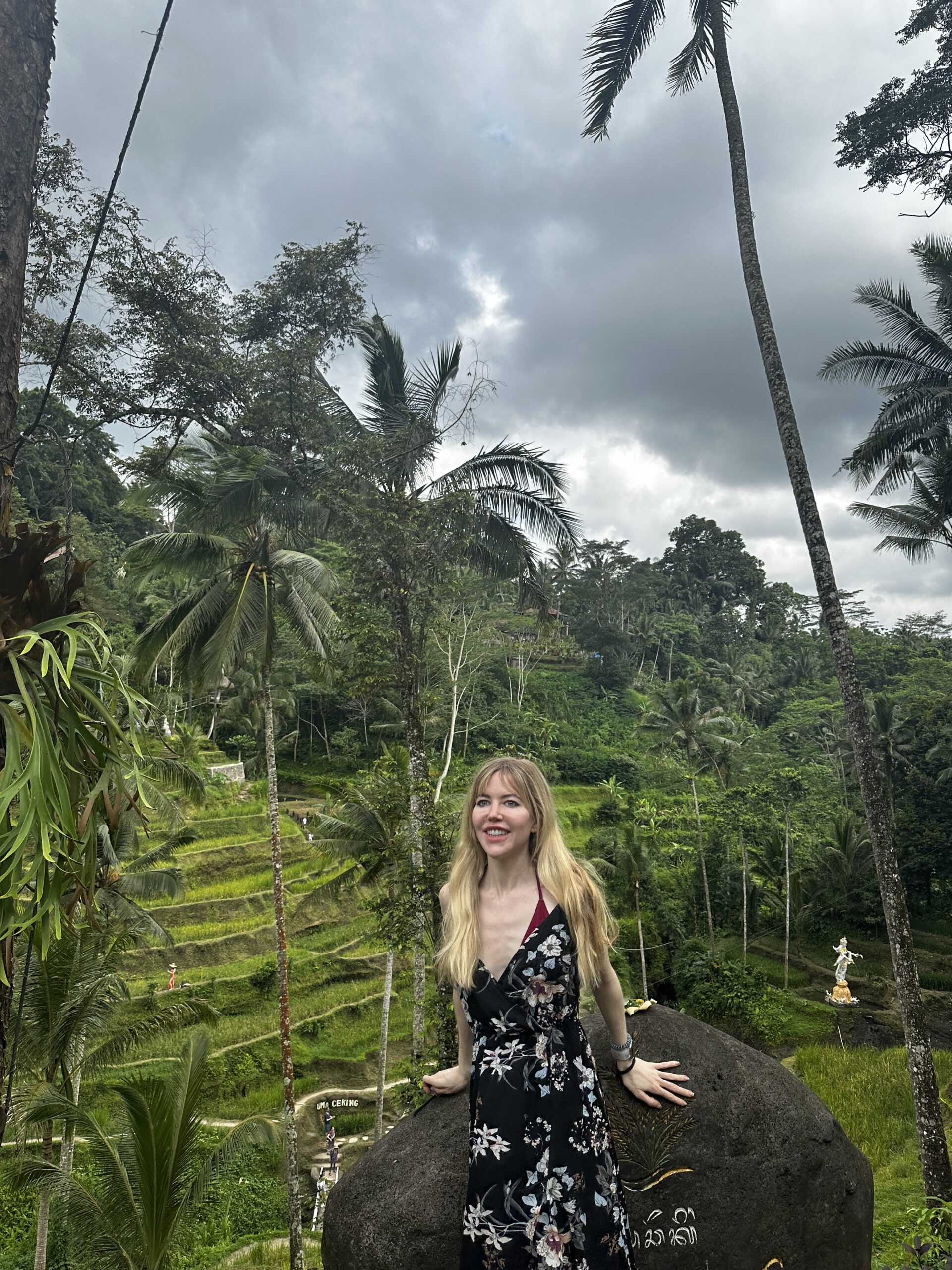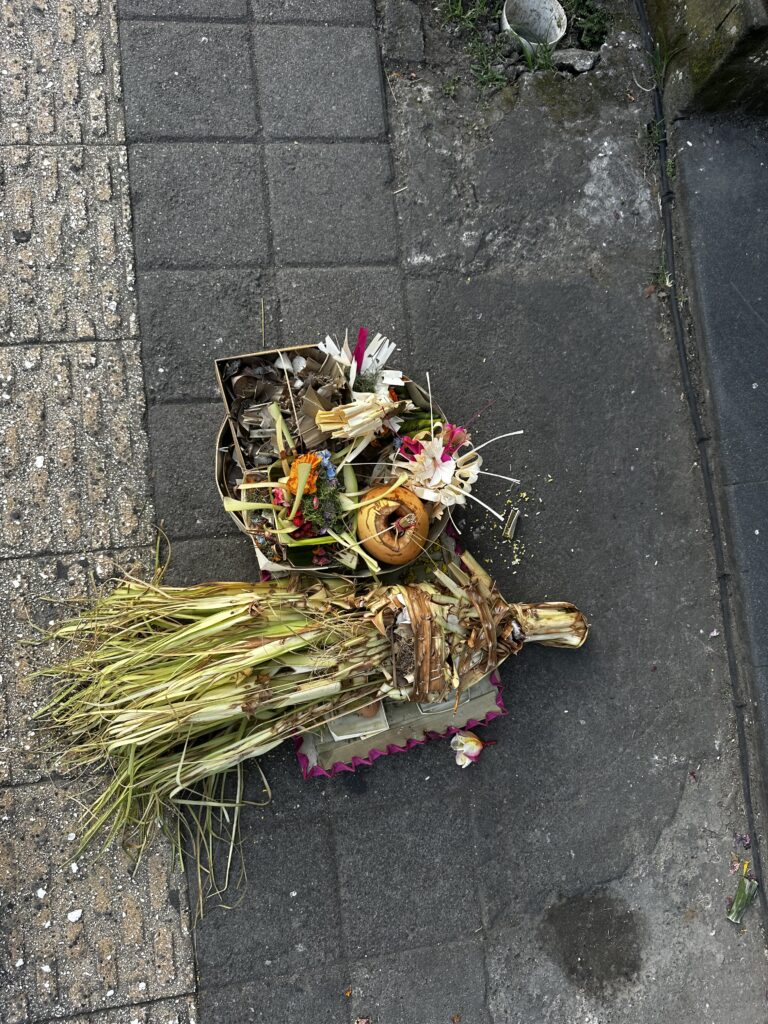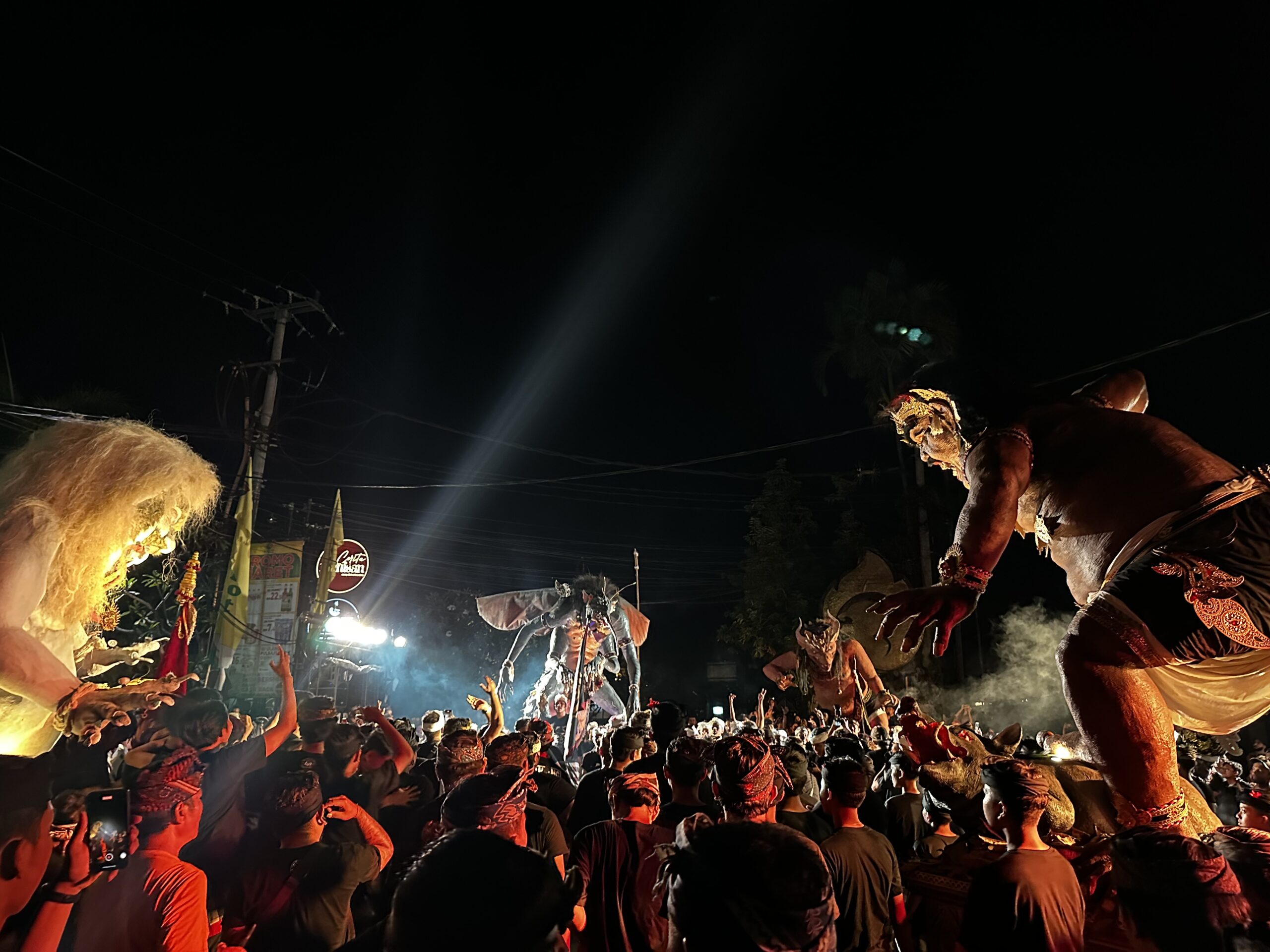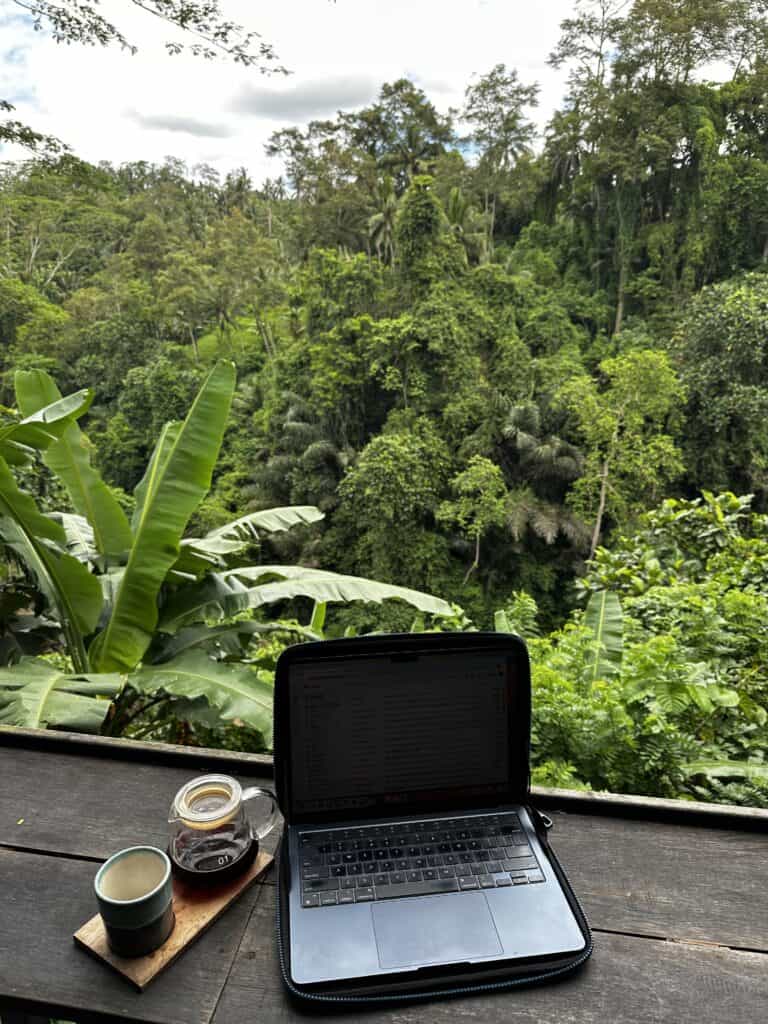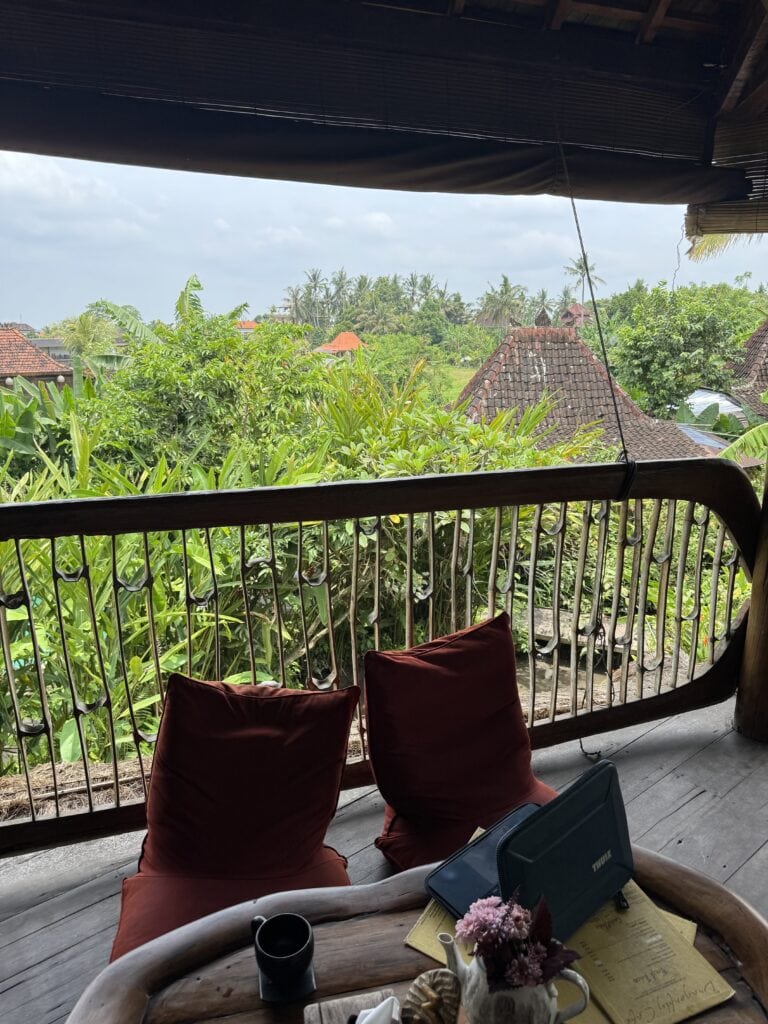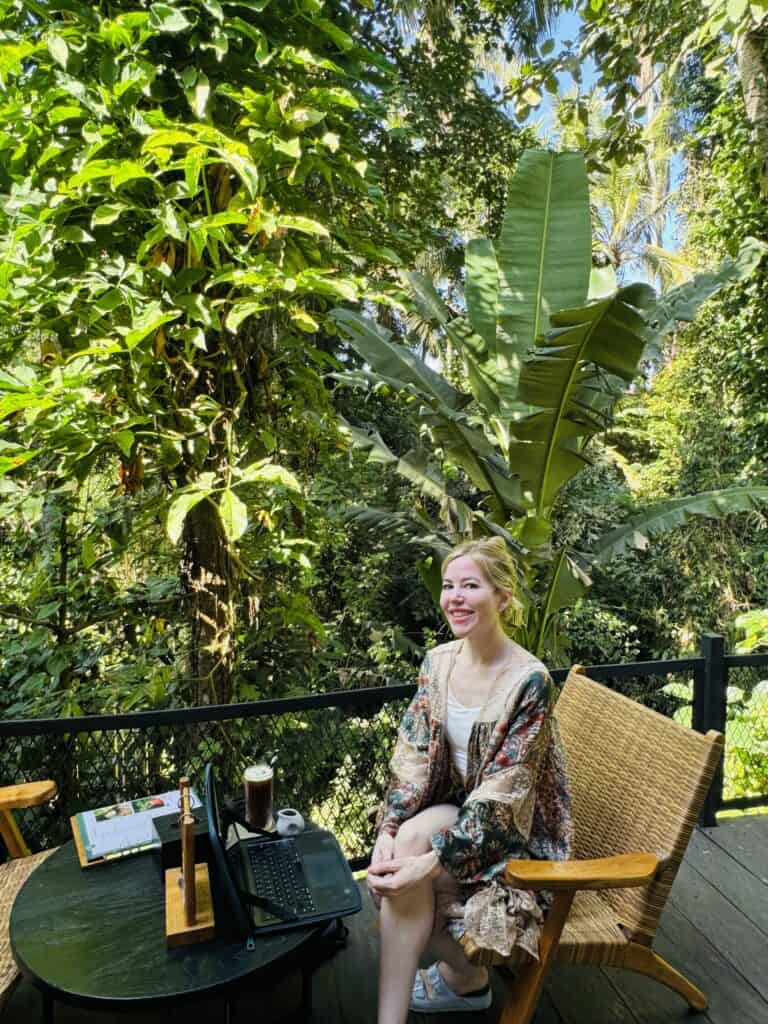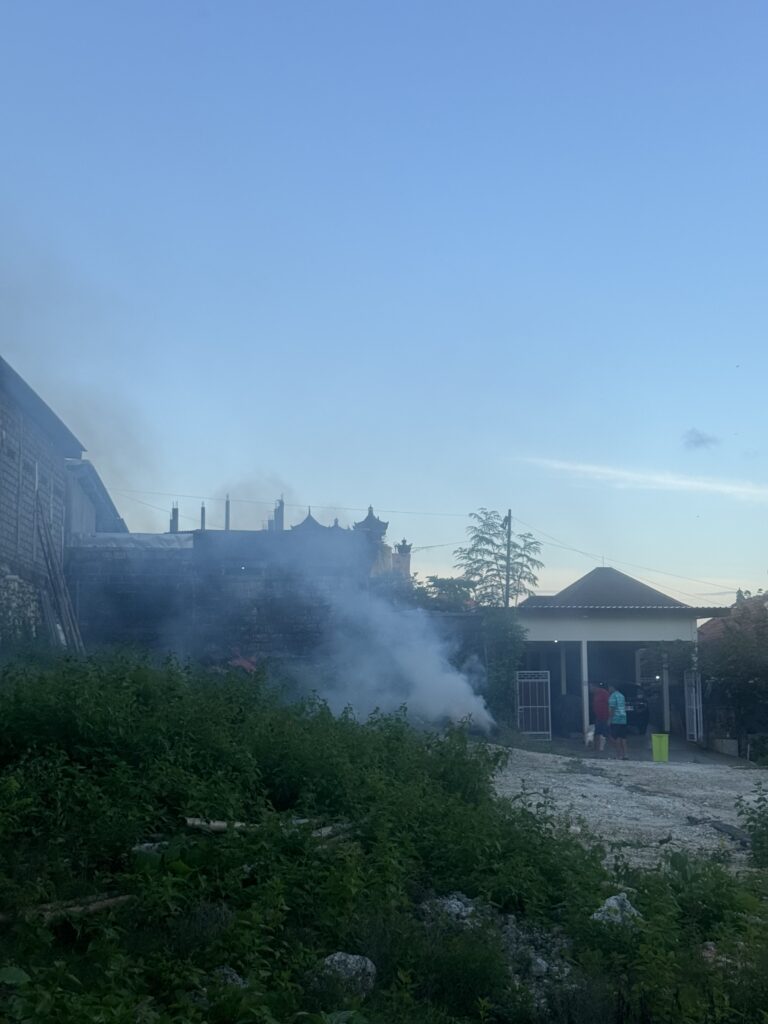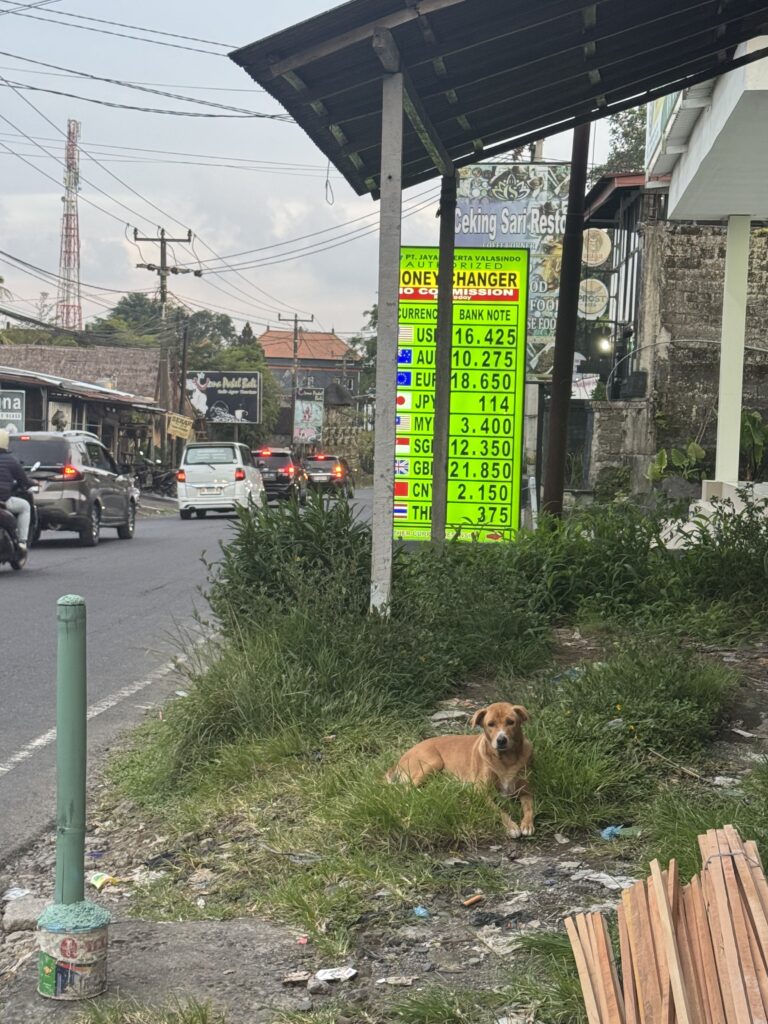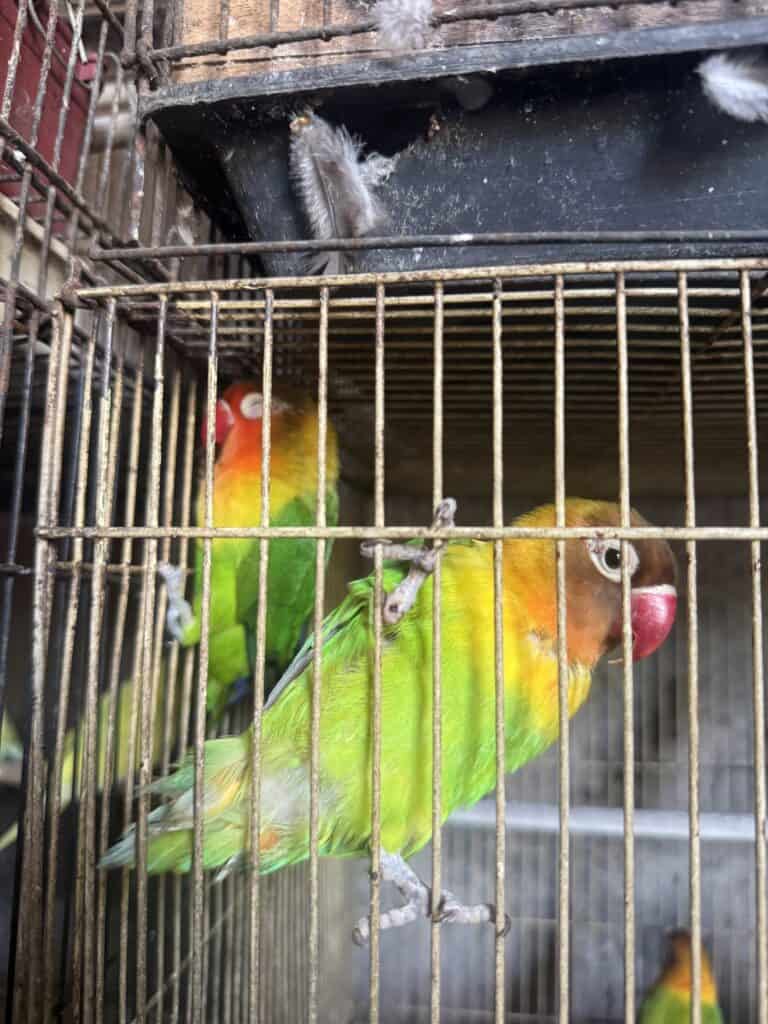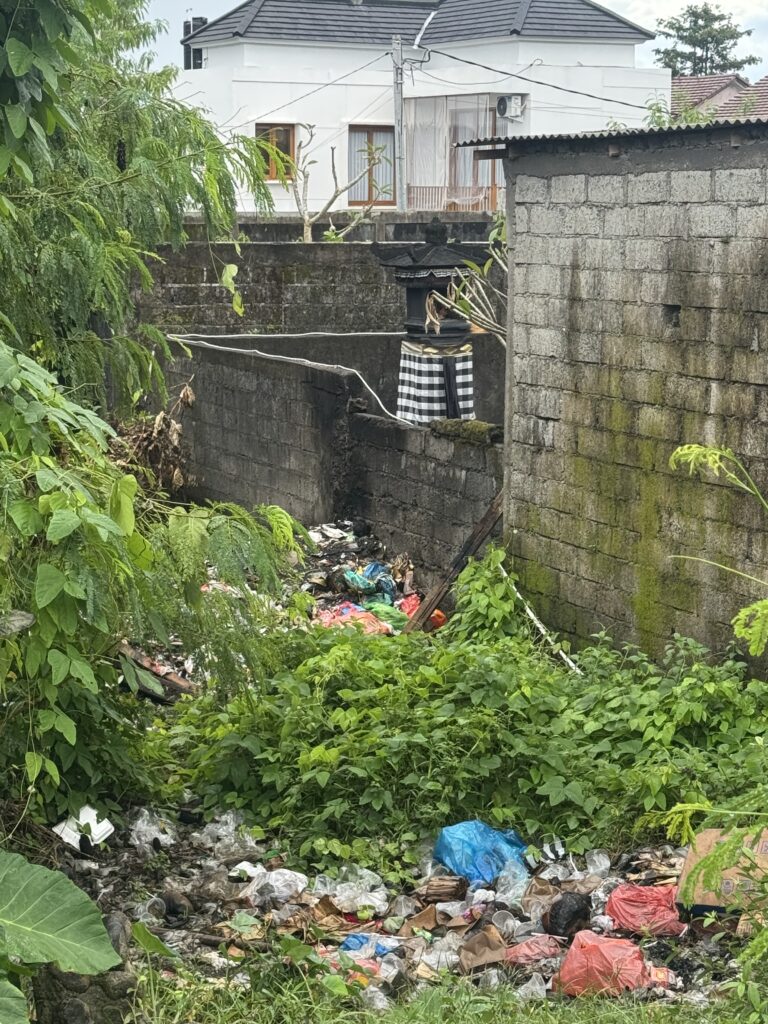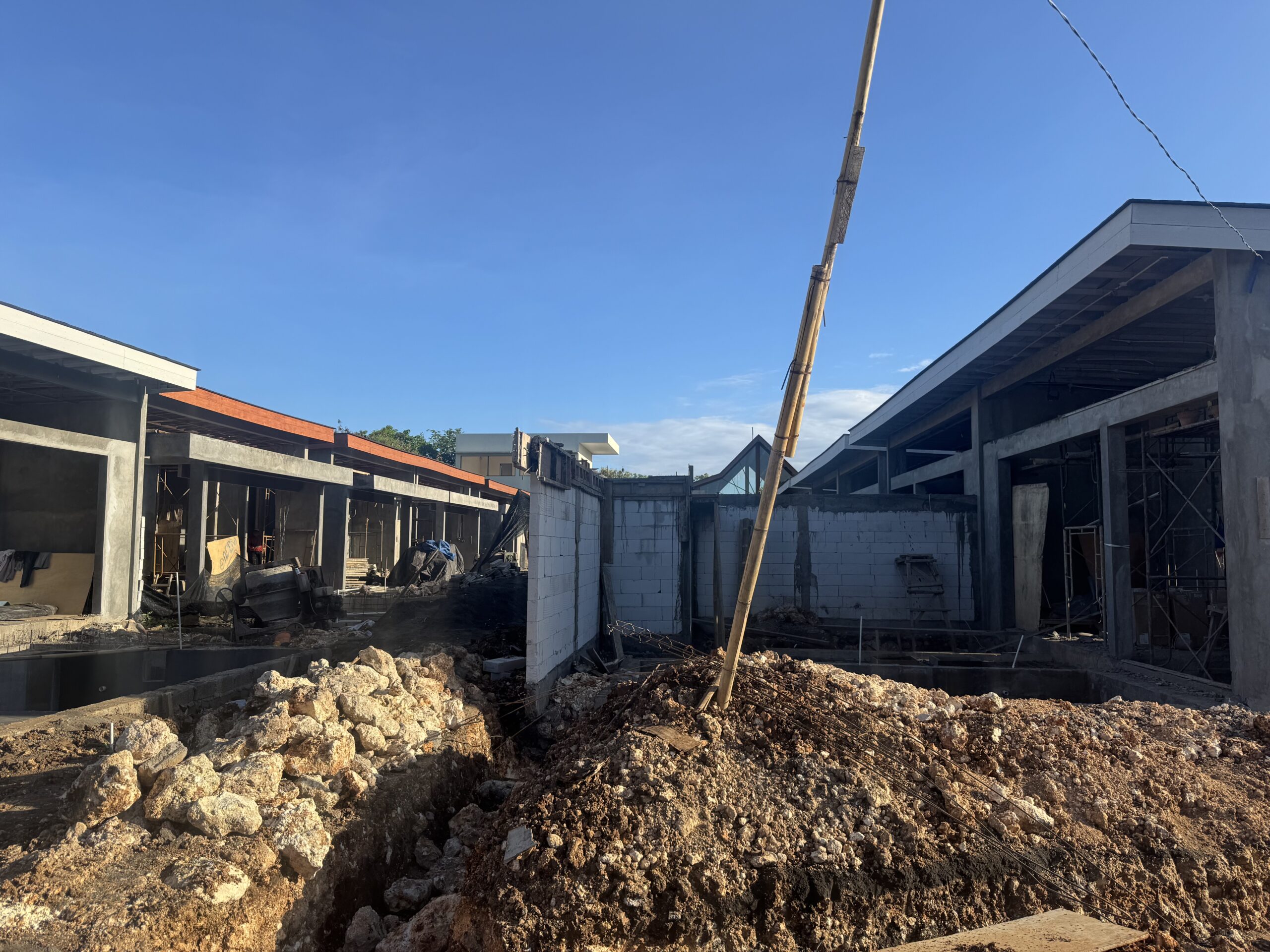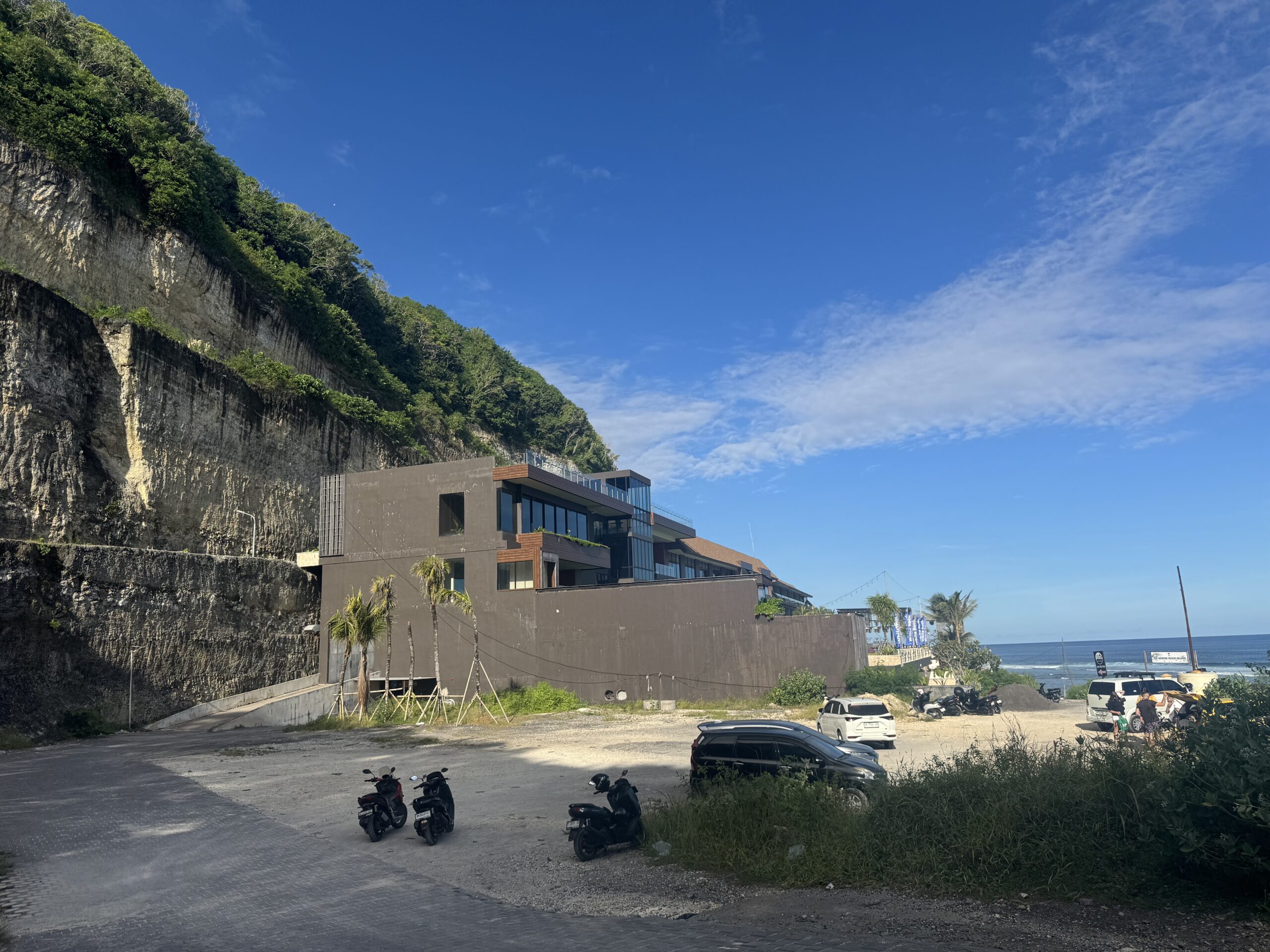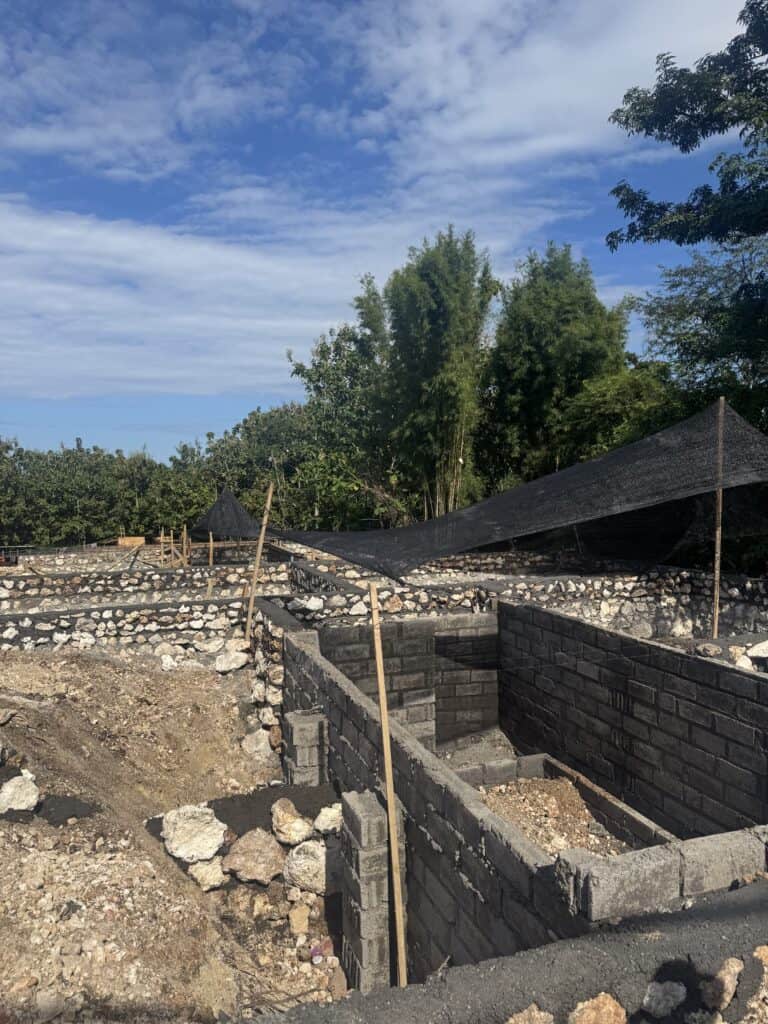On Instagram, Bali looks like a total dream: sunrise surf sessions, “$2” smoothie bowls, laptop hours in bamboo cafés above neon-green rice paddies, and sunset dips in infinity pools.
Except…
Those smoothie bowls start closer to four bucks now. And Uluwatu’s prices can rival Barcelona’s.
But cost of living aside, what’s it really like to live in Bali? Day in, day out?
After two months on the island (three if you count the month I spent here two years ago lol), I’ve noticed a lot of things that you won’t find in the travel guides (or even other travel blogs) — and a few things that surprised me about living here.
So in this post, I’m spilling both sides of the coconut: what I love about living in Bali… and what drives me crazy enough to decide that I probably won’t come back again (unless a LOT of things change).
Let’s start with the good…
Things I love about living in Bali
1. The nature is downright incredible
Bali is one of the most beautiful places I’ve ever been. From the white-sand beaches, turquoise waters and dramatic cliffs of Uluwatu to the waterfalls of North Bali to the jungle and rice terraces of Ubud…
There is endless natural beauty to explore on this island. And (spoiler alert) it’s all frikkin’ incredible.
I still have a lot to see but here are some of the best spots I’ve been so far:
Uluwatu
This is THE spot for surfers in Bali. And it’s got the most beautiful beaches (I think anyway).
It’s also the most expensive area of the island. A basic room will set you back around $60 USD (or more) per night. A meal at least $10-$15. All too expensive for me so I rented a room further inland for $20/night.
Psst: Don’t miss the sunsets at Karang Boma Cliff in Uluwatu. They’re the best in Bali.
Amed
This laid-back spot is known for its world-class snorkeling. It’s way less developed (and less touristy) than other parts of the island. Which means less traffic, cleaner air, and a quieter vibe overall. Most of the restaurants are local warungs, so there’s not much in the way of Western food. There also aren’t any big supermarkets or hospitals nearby, and it’s about a 3-hour drive from the airport. For those reasons, I personally wouldn’t live in Amed. But it was really nice to visit.
North Bali
I only spent a day in North Bali… but I wish I had stayed longer.
It’s noticeably cooler, wetter, and more humid than the south. On the day I visited, it was a full 8–10°C cooler than Canggu! Which made walking and exploring much more enjoyable.
Because this area gets more rain, it’s also suuuuper lush and green. With lots of hiking trails and the most beautiful waterfalls I’ve ever seen:
Here’s a closer look at one of those waterfalls (Sekumpul, the tallest waterfall in Bali):
It’s truly one of the most breathtaking places I’ve ever been.
Ubud
Ubud is known as the cultural and spiritual hub of Bali. If you’re into yoga and meditation… or just want to surround yourself with jungle and rice terraces… this is the place to be.
And now onto the second reason why I love living in Bali…
2. The locals are friendly and accepting of outsiders
They’ll always ask “where are you from?” with a big smile. And even though the island is packed with tourists, they seem genuinely interested in the response.
Balinese people are accepting and nonjudgemental (which I’ve heard isn’t the case on other Indonesian islands, like Java, for example). They don’t care how you dress, what religion you practice or what kind of lifestyle you have (or if they do care, they don’t show it). There’s a laid-back, accepting vibe that makes it easy for anyone to fit in and feel at home in Bali.
3. It’s very safe
The Balinese tend to be very honest, respectful people. So petty theft and robbery isn’t common. I left my iPhone on the Grab bike (motortaxi) once and the driver immediately returned it. Unlike other places in Southeast Asia, like Thailand or Vietnam, there aren’t many scams either.
The worst street “harassment” I’ve experienced was a truck full of teenagers yelling “I love you!” as they drove by lol. So I feel completely safe walking home alone at night. Well, except for the street dogs (more on that in a bit…).
4. The culture warms your heart
Bali is the only Indonesian island where Hinduism is the main religion. 87% of Balinese people practice a unique form of Hinduism, which blends Hindu, Buddhist and local animist beliefs.
While I’m not super spiritual myself, it’s nice to be surrounded by such peaceful energy and people.
For example… despite all the traffic, road rage doesn’t seem to exist in Bali. People honk a lot. But not out of aggression. Honking is more of a polite gesture to let the other driver(s) on the road know that you’re there. I’ve never even seen Balinese people fight or argue. And I think the religion plays a big role in that.
Balinese Hinduism centers around the idea of maintaining balance and harmony between people, nature, and the spiritual world. Each day, the Balinese make offerings (called canang sari), which are meant to express gratitude and seek blessings. You’ll see offerings everywhere in Bali: on sidewalks, in front of shops, at temples… even on scooters.
In addition to offerings, the Balinese hold ceremonies regularly for big (or small) life events. Like weddings, funerals or even buying a new motorbike or moving into a new home. Ceremonies are a way to honor the gods, show gratitude, ask for protection, and keep peace between the seen and unseen worlds.
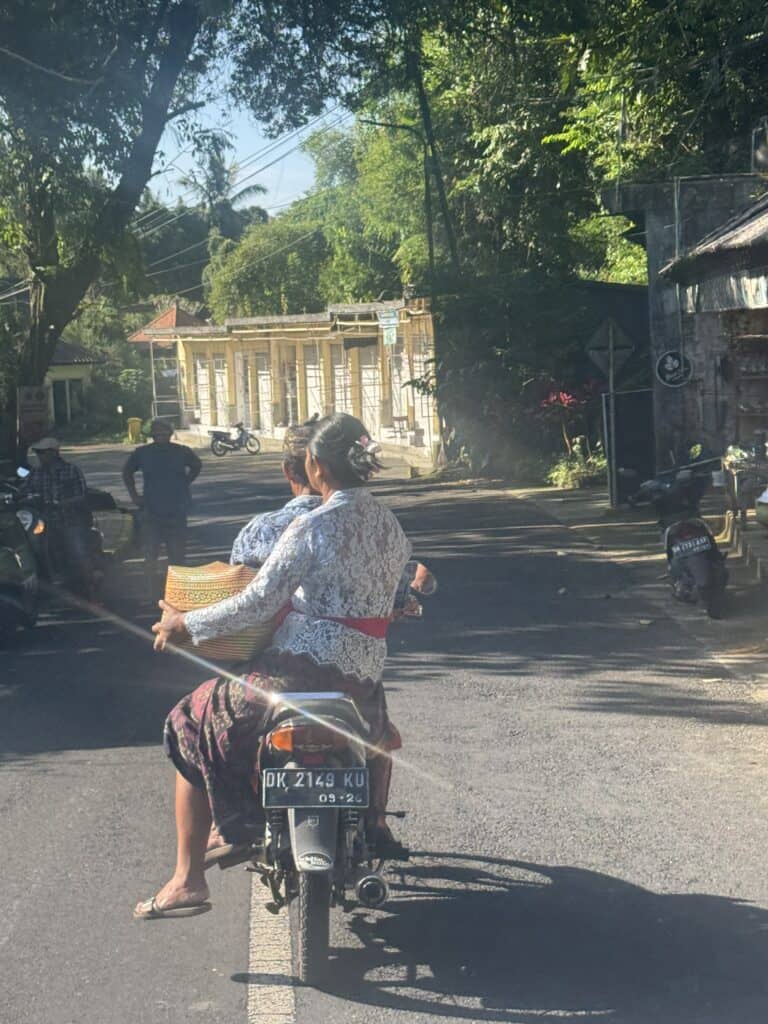
Ceremonies take place at temples. Which are also everywhere on the island. Literally. In Bali, every home has a temple (at least that’s what I’ve been told).
In addition to the home temples, each village normally has at least three public temples. Some of my favorites include:
- Goa Gajah
- Tirta Empul
- Pura Besakih
- Pura Luhur Uluwatu
- Tirta Gangga
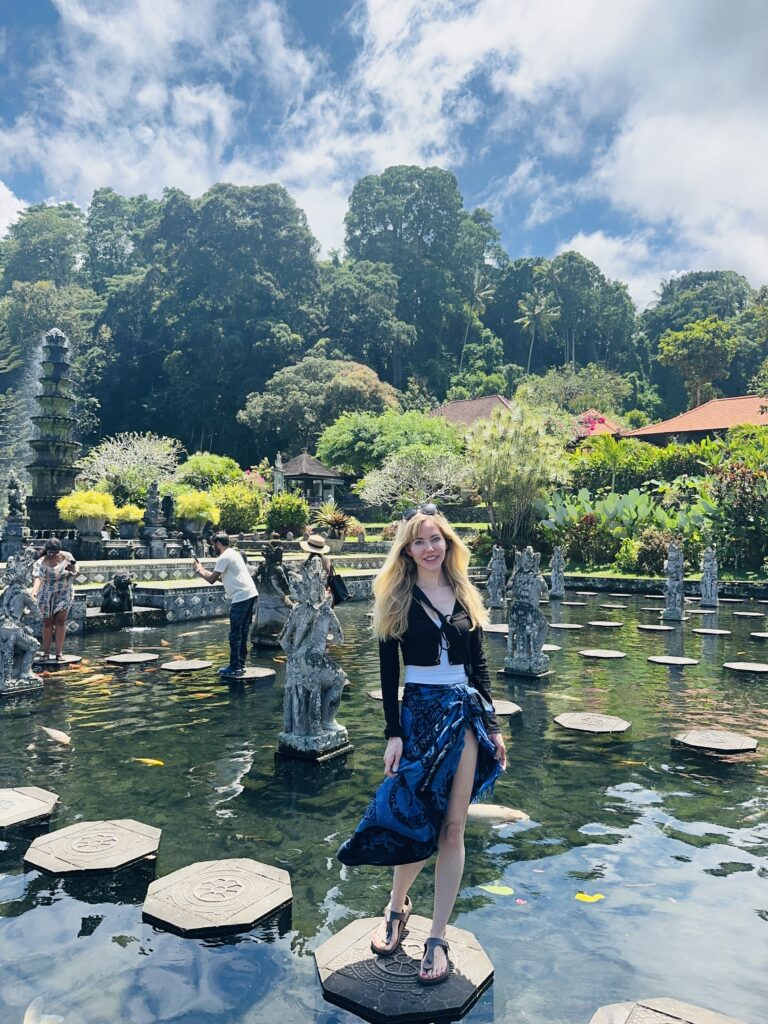
Feels like you step back in time a bit!
And then there are all the local traditions…
Like Nyepi. Nyepi (also known as the Day of Silence) marks the start of the Balinese New Year. It’s a day dedicated to silence, meditation, and self-reflection. A time to pause, reset, and clear the mind before stepping into a new year.
On Nyepi, everything in the island shuts down. And I mean everything. Even airports. For 24 hours, everyone must stay home. Local police even patrol the streets to make sure nobody is out.
They say there is no wifi or electricity – but that wasn’t the case where I stayed. Both times I was in Bali for Nyepi, my Airbnb had wifi and electricity. My hosts just asked guests to be quiet. Whether you have electricity or not, it’s a good excuse to unplug, meditate if that’s your thing and reflect.
The night before Nyepi, there is a massive parade where locals fill the streets with music, fire torches and giant paper mache/bamboo dolls (called “ogoh-ogoh”) that they spend months making. The dolls, which symbolize demons and negative forces, are meant to drive away evil spirits and purify the island before the new year.
It’s truly a one-of-a-kind experience, so don’t miss it if you come to Bali!
5. There are sooo many pretty (and comfortable) cafes to work from
Most cafes (at least the ones that cater to foreigners) come equipped with outlets, fast wifi and comfortable seating. So you could easily stay and work all day. Many of them have gorgeous views too. Especially the ones in Ubud.
I’ll share another post on my favorite cafes but here are a few that have struck my fancy:
- Dragonfly Cafe (Ubud)
- Kalos Bali (Ubud)
- Keliki Coffee (Ubud)
- Work Coffee Space (Uluwatu)
- Ohana Bali Restaurant and Bar (Uluwatu)
- Miel Specialty Coffee (Canggu)
- Zin Cafe (Canggu)
Things I hate about living in Bali
And now for the things I *don’t* like about living in Bali (aka the reasons I wouldn’t live here long-term).
1. The air quality is horrible
This one tops the list for me. Air quality is sooo important for long-term (and even short-term) health. And unfortunately, the air quality is horrible in many parts of Bali.
My hair constantly feels like straw since I’ve arrived (even though I wash my hair with filtered water). I’m convinced it’s due to the poor air quality. I’ve recently started wearing a face mask when the air quality is bad… I only wish I had started wearing one sooner!
So why is the air quality so bad here?
Many locals burn their trash at all hours of the day — especially in the morning and around dusk.
Unfortunately this is a common practice that happens all over the island (and apparently, all of Southeast Asia). One foreigner in the Bali expat Facebook group said that he could smell the smoke even with his windows and doors closed. That’s how bad it is.
Add in the seasonal rice-field burn-offs, ubiquitous cigarette smoke, and the exhaust fumes from thousands of motorbikes, and you’re left breathing a smoky cocktail of dangerous pollutants. Especially in Canggu and Ubud. Since I’ve been here, I feel like I can rarely smell nature. Which is a shame because the nature is what I love most about this island!
In Amed, the air quality did seem much better thanks to the fact that there is less traffic and no rice fields. That was the only place where I felt like I could go on walks and not feel suffocated by smoke.
If you’re sensitive to pollution, have respiratory issues or just want to stay healthy like me, Bali probably isn’t the best place for you. Unless maybe you live somewhere with less people around (like the North of Bali or Amed).
If you DO decide to live in Bali, it’s probably a good idea to invest in an air purifier.
2. Nearly everyone smokes
I thought that people smoked a lot in Spain, but honestly it’s at a whole other level in Bali.
Indonesia has the highest percentage of male smokers on the planet. Apparently over 70% of Indonesian men smoke cigarettes. Although in Bali, it feels closer to 100% lol. I’d say the majority (or at least a huge percentage) of foreigners also smoke here.
So if you live in Bali, you’ll inevitably end up doing a lot of passive smoking. Because the smokers aren’t respectful of nonsmokers. And the restaurants have very liberal smoking policies. Which means you’ll be sitting down at a restaurant terrace (or even inside an open-air space) and people will light up right next to you. So inconsiderate!
3. Traffic is bad (and noisy)
Bali’s narrow roads weren’t designed for so much traffic. With tourism booming (and no public transportation to ease the load) the traffic is getting worse and worse each year.
Expect lots of motorbikes weaving between cars (or on “sidewalks”) and frequent bottlenecks near the center of town. So if you’re expecting peaceful island vibes… you definitely won’t find that in Bali. At least not in popular spots like Canggu, Uluwatu, Kuta or Seminyak.

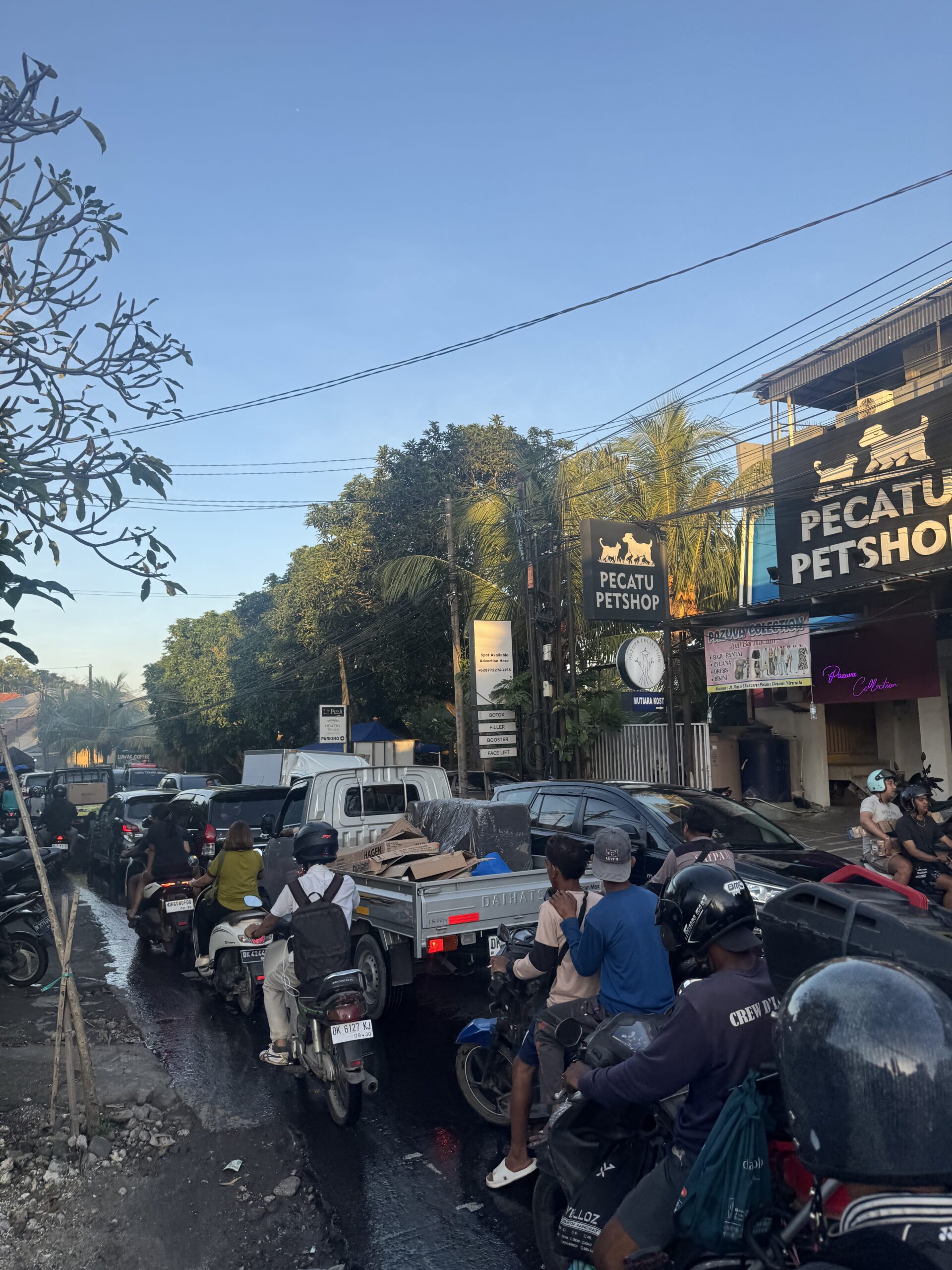
Since there isn’t any public transportation in Bali, you’ll have to rely on a motorbike to get around. Personally, I don’t feel confident enough driving a scooter so I just take Grab everywhere (which is like the Uber of Southeast Asia).
BTW… Unless you’re super confident on two wheels, I highly recommend *not* renting a scooter and just taking Grab instead. There are no traffic rules in Bali (at least none that people actually follow). So you really have to know what you’re doing. Way too many foreigners think they know how to drive and end up getting in accidents. Not worth the risk IMO, especially if you’re only here for a short time.
Regardless, if you want to go from one part of the island to another, you’ll need to hire a driver (unless you feel like driving several hours on a motorbike).
4. Walking isn’t ideal
In Barcelona, I walk (or bike) everywhere. In Bali, I take a motorbike (or motortaxi) everywhere. I do some walking too but it’s not ideal. For a few reasons…
1. There aren’t many sidewalks
Unless you’re in the center. Which means you’re constantly dodging cars and motorbikes and hoping you don’t get run over lol.
If sidewalks do exist, they’re filled with gaping drainage ditches that you *definitely* don’t want to fall into. Like so…
2. The street dogs can become aggressive and territorial (especially at night)
Most of the street dogs keep to themselves so I don’t want to sound overly dramatic here…
But there have been a few times where I felt like I was going to be attacked. One dog starts barking and then multiple suddenly appear out of nowhere.
When they’re barking and coming at you from all directions… it’s hard not to panic a bit. Especially because rabies *does* exist in Bali. So you don’t want to get bitten by a stray dog.
If you’re walking in a busy or populated street, you’ll be fine. But you have to be careful walking in more deserted areas, especially at night.
3. The air quality isn’t suitable for walking
‘Cause who wants to breathe in toxic fumes while walking?! Not me.
So yeah… for those reasons, walking in Bali is not ideal.
That said, I did find Amed to be much more walkable. Especially when you get off the main roads. There are narrow paths that technically weren’t built for walking (they’re built for motorbikes). But since there’s so little traffic, they double as peaceful walking trails.
Ok now where was I…
5. Animals live in tough conditions
Stray dogs are everywhere in Bali. And it’s heartbreaking to see how many of them are skin and bones, flea-ridden, or nursing untreated wounds.
(That one seems in okay shape)
But dogs actually have it pretty good compared to other animals in Bali…
You’ll spot birds confined to tiny cages, either distressed and frantically trying to fly…
Or motionless and depressed.
You’ll see cows tethered to trees with a rope through their nostrils, with nowhere to roam, sitting/standing there all day in their own feces and urine…
You’ll see half-dead chickens crammed into cages in the back of a truck in the sweltering heat…
It’s heartbreaking.
I know that animal cruelty happens everywhere, but seeing it so out in the open is difficult. If you’re an animal lover or an empath, prepare yourself: it can be tough to witness.
6. Healthcare isn’t great
Healthcare in Bali is sufficient for basic needs or emergencies. But there are limitations, especially for more serious conditions. And depending on where you are, you could be 30 minutes (or more) from the nearest hospital. So that’s something to take into account.
7. There is trash everywhere (and little concern for the environment)
There is no real waste management system in Bali (and recycling is nonexistent). So all the trash is dumped into empty lots, oceans or rivers.
It’s sad to see such a beautiful place covered in trash.
That’s why I try to avoid plastic as much as possible. Some restaurants and cafes still serve drinks in plastic cups. I try to steer clear of those places (you can check out the photos on Google Maps to see if they use plastic).
8. The food is only so-so
Confession time: I’m not a huge fan of Indonesian food. So I’ve mostly been eating, well, non-Indonesian dishes. Partly out of preference, partly because I need more variety in my diet. There’s only so much nasi goreng and mie goreng I can eat! Plus, most of the local restaurants cook with inflammatory seed oils, which I try to avoid.
But even the foreign food isn’t great. Now to be fair, my standards are probably a bit skewed after living in Barcelona, one of Europe’s top food cities. But the produce and restaurant meals just don’t have the same freshness or depth of flavor I’ve gotten used to. I’ve only had one meal that’s wowed me (it was Indian). The rest have just been… okay.
And call me neurotic (lol) buuuut I question the hygiene standards and how safe the food I’m eating actually is. I often see street vendors selling raw meat. Not refrigerated. Just sitting out in the heat for hours on end.
Hmm. Makes me wonder…
Does the restaurant food I eat come from those same vendors?
Gross. Maybe I’d rather not know.
During my first month in Bali, I shopped at a local organic market and cooked at home a lot (in an attempt to be healthy and save money). But I found that many of the western foods I’m used to just didn’t taste good. Things like sauerkraut and kimchi, coconut yogurt, peanut butter… yuck.
In the end, I ended up wasting a lot of money on foods I didn’t eat.
Ok, I know I probably sound so spoiled and obnoxious saying all of this. And I know what you might be thinking:
“Well duh… you’re in another country! Get over it.”
True. And it’s fine for a few months. I can adapt. But eating high-quality, organic foods is super important to me. So this one’s a dealbreaker.
BUT I will say this: some of the fruits and herbs here are amazing. I’ve enjoyed trying all the different teas. And snake fruit is delish…
Oh and the coconut water! Soooo good. I will definitely miss that.
9. Overtourism and overdevelopment is destroying the island
I only visited Bali for the first time in 2023. But I’ve heard that many people who fell in love with Bali years ago say it’s no longer the place it once was. My boyfriend is one of them. He used to come to Uluwatu 15-20 years ago to surf and he says it was a completely different place back then. Far fewer tourists. Much less developed. Way cheaper.
Look how it is now (this is in Uluwatu but the development is everywhere):
Same thing with Ubud. The center is complete chaos now (and I wasn’t even there during the high season).
Canggu is even worse: constant traffic jams, nonstop construction, and swarms of rude, obnoxious foreigners.
You see people riding big motorbikes with over-the-ear headphones instead of helmets. Groups of 22-year-olds mostly there to party and get wasted. And rude, disrespectful people who don’t even respond or say “thank you” to the kind wait staff.
Definitely not my vibe.
What (I’ve heard) was once a peaceful, spiritual island now feels overcrowded, overdeveloped and overrun by tourists. And it’s heartbreaking to witness such a naturally beautiful place being destroyed, little by little.
Especially because despite all the construction going on, the public infrastructure has stayed the same. The streets aren’t designed for so much traffic. There is no waste management system to keep up with the growing population and high influx of tourists (hence all the litter and trash burning). And as mentioned earlier, sidewalks are few and far between. The ones that do exist are lined with open drainage ditches.
So there ya have it! The things I love and hate about living in Bali.
Did anything surprise you? Would love to hear it. Lemme know in the comments.
Oh — and if the idea of basing yourself in Bali (or any corner of the globe) sounds amazing but you’re still figuring out the “how do I fund this?” part…
Cue the friendly plug 👀
Take a peek at my Nomad Copywriter Starter Kit.
It’s the exact playbook I’ve used over the last 8+ years to earn a full-time income while hopping from Spain to Southeast Asia and everywhere between. Inside you’ll get all the tools resources you need to become a digital nomad copywriter like moi.



